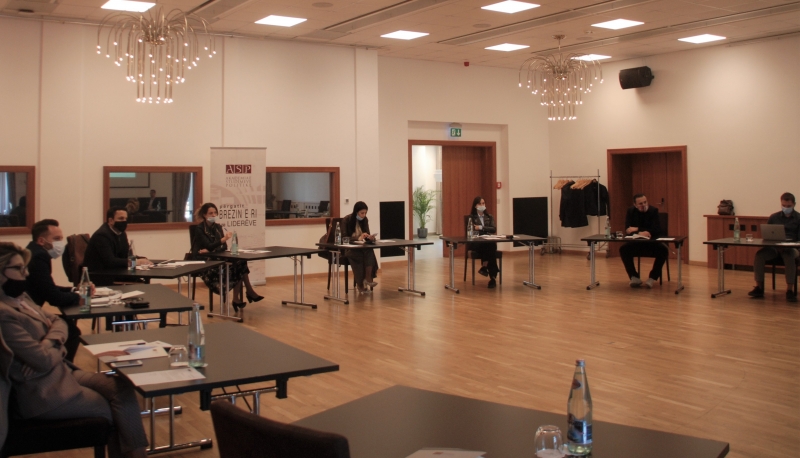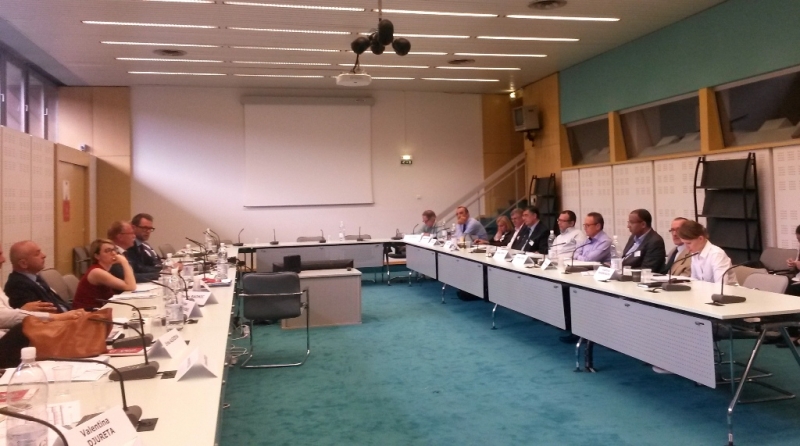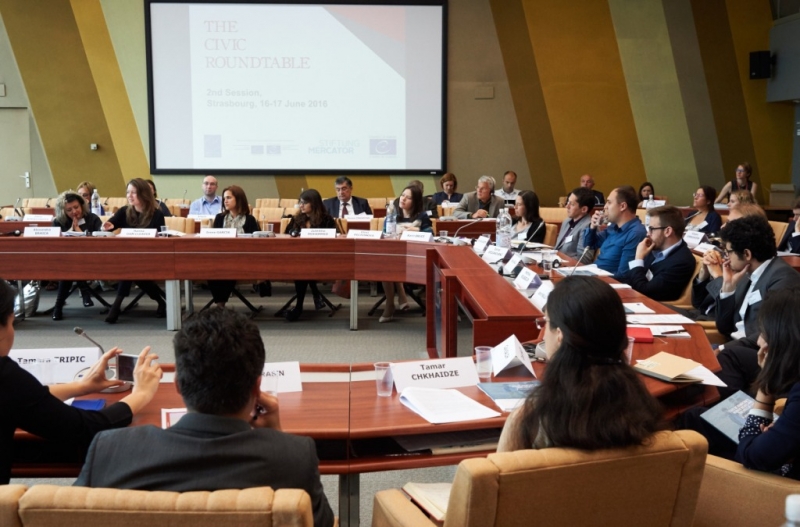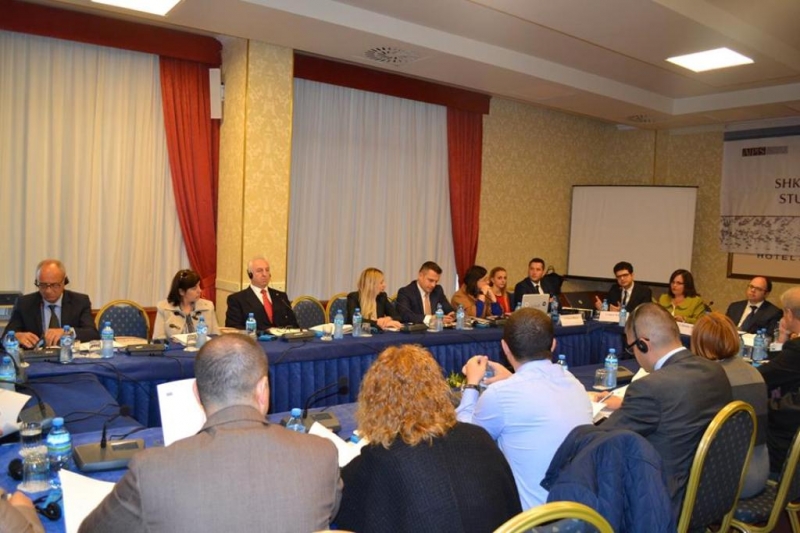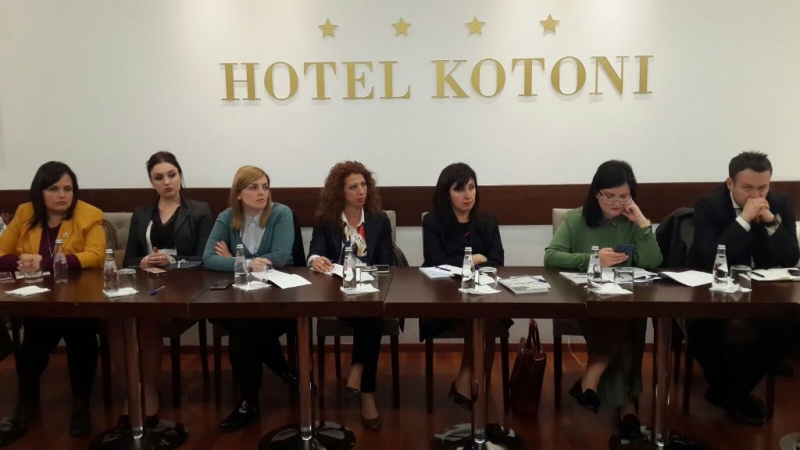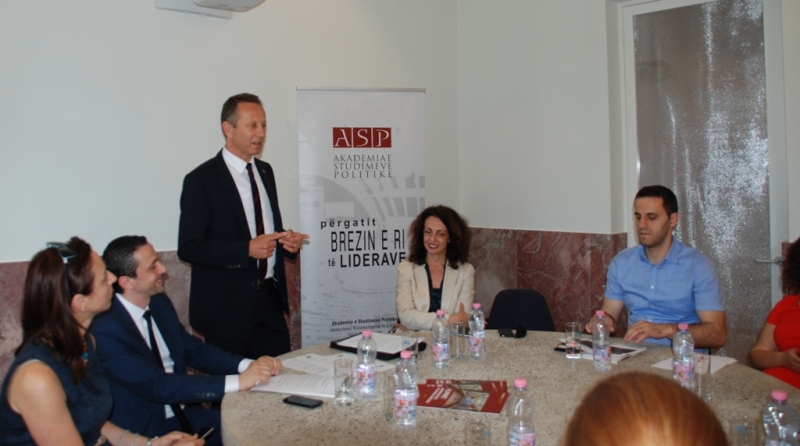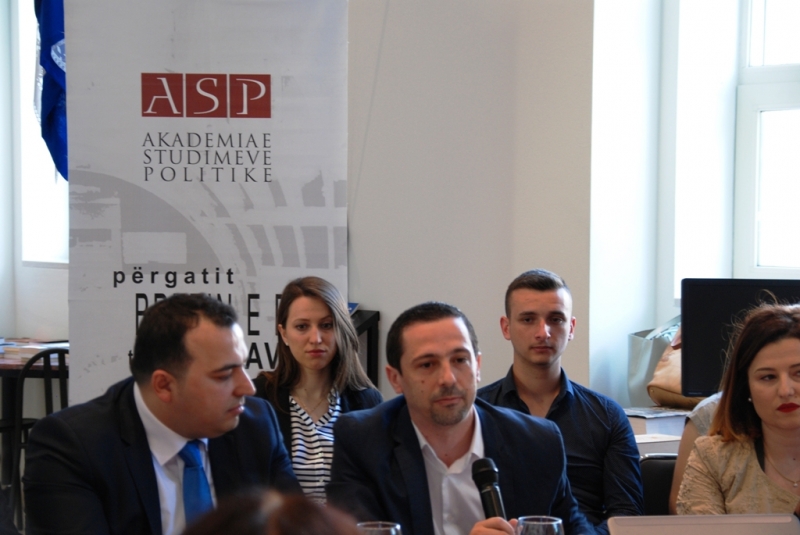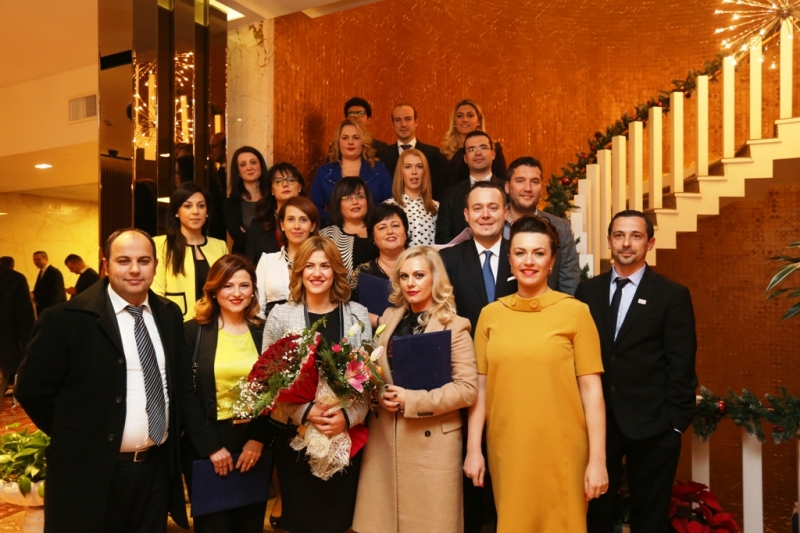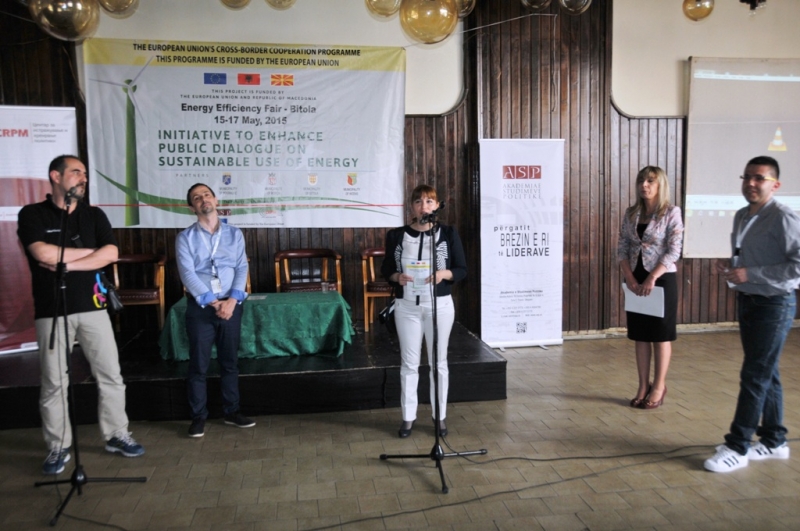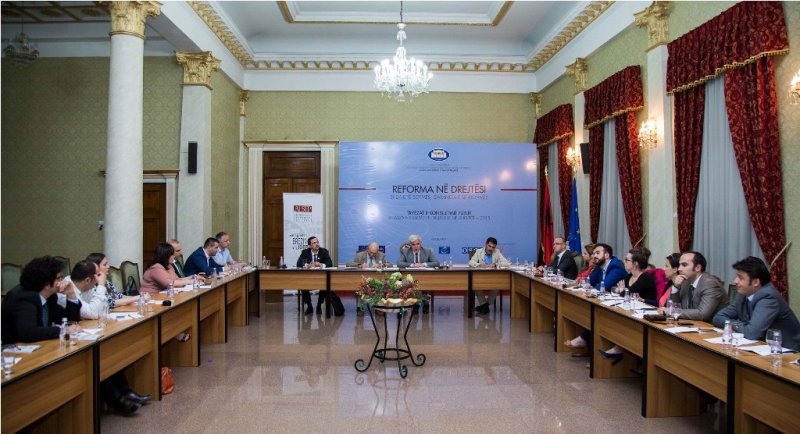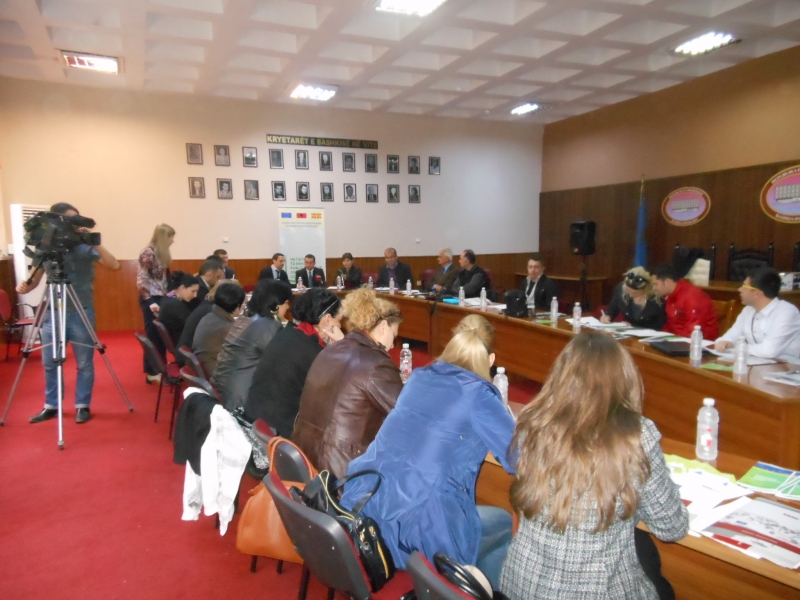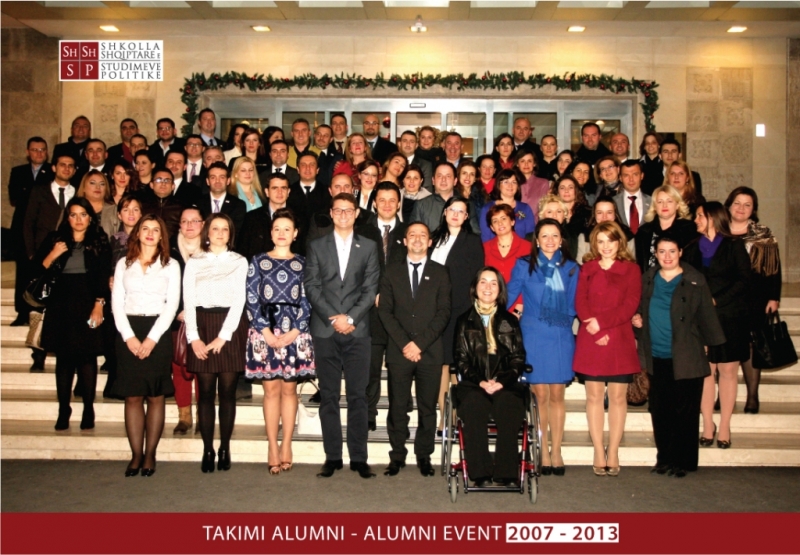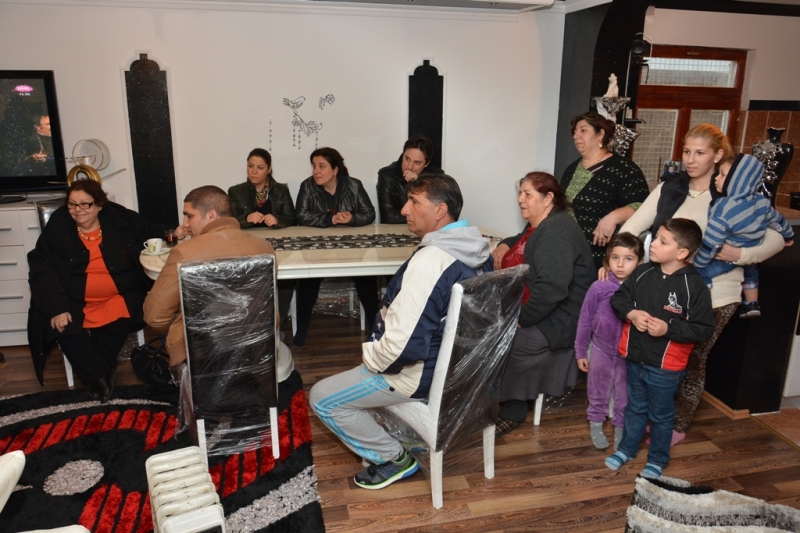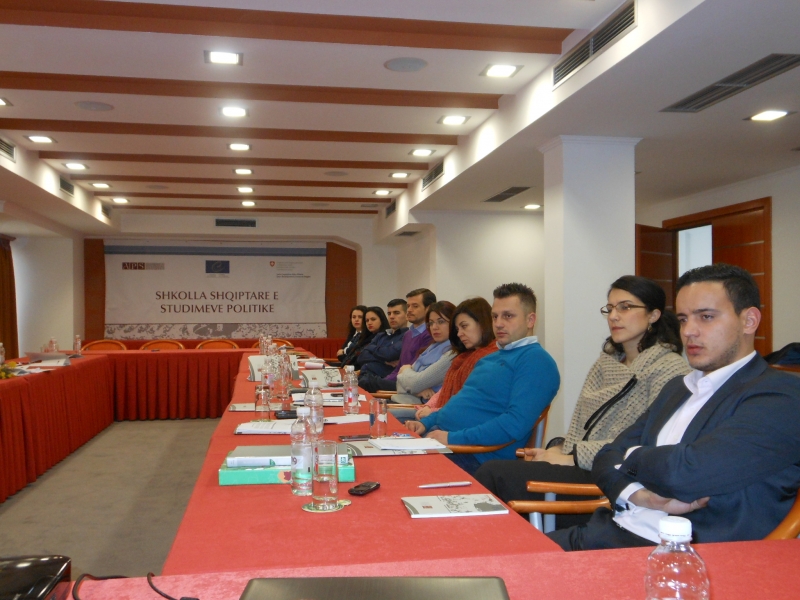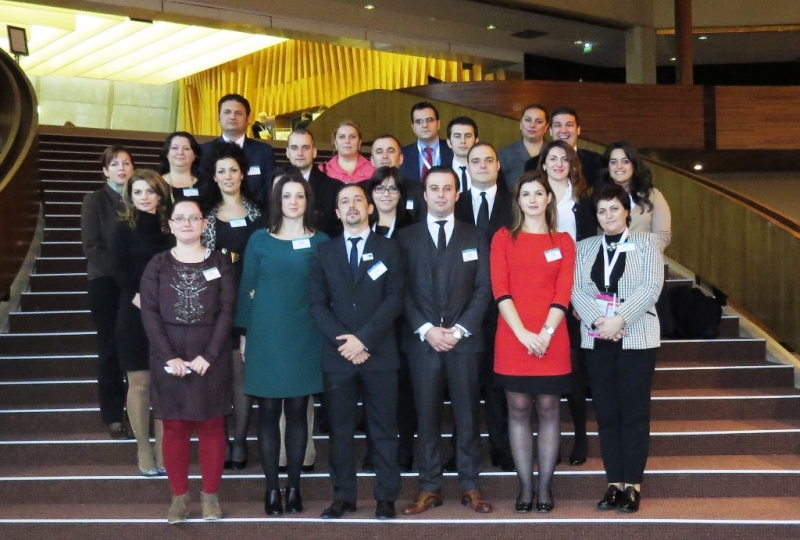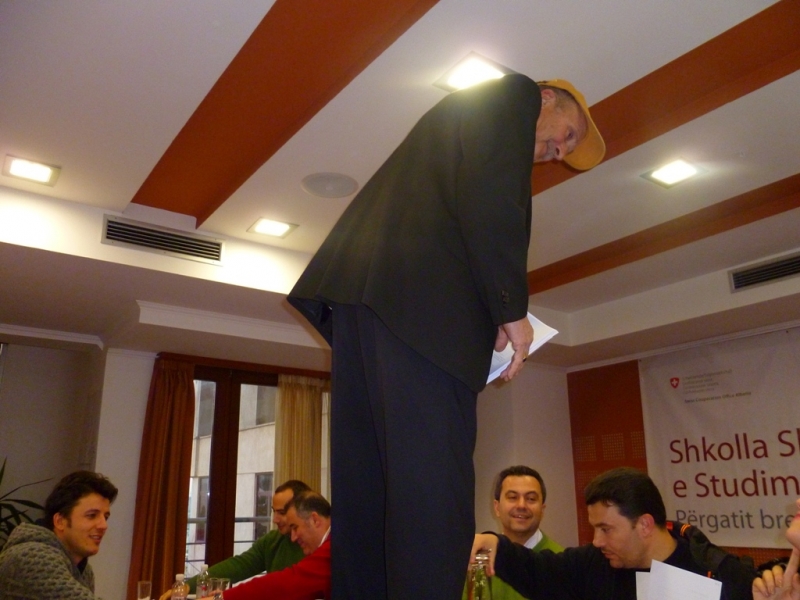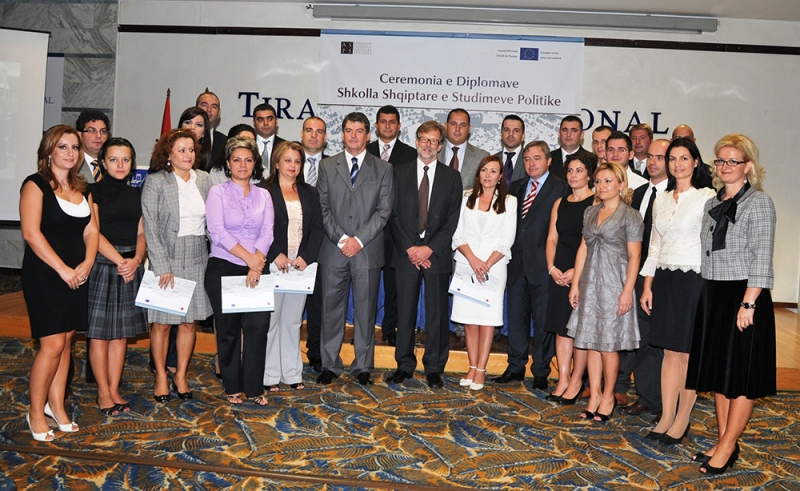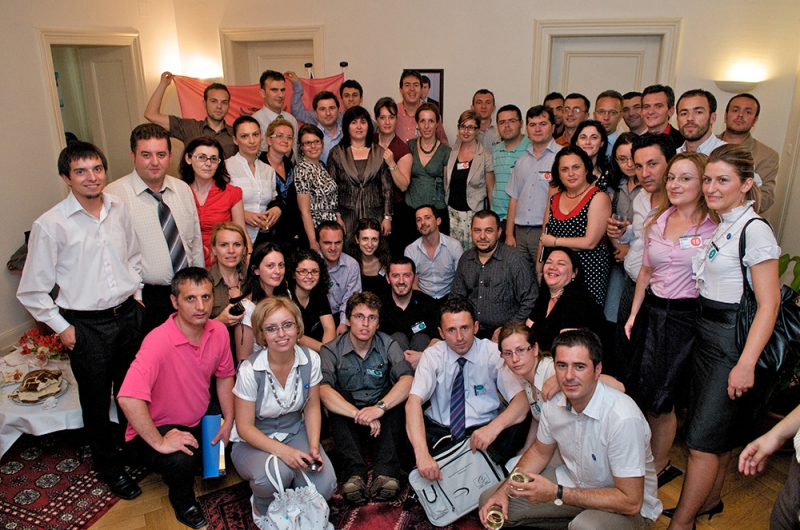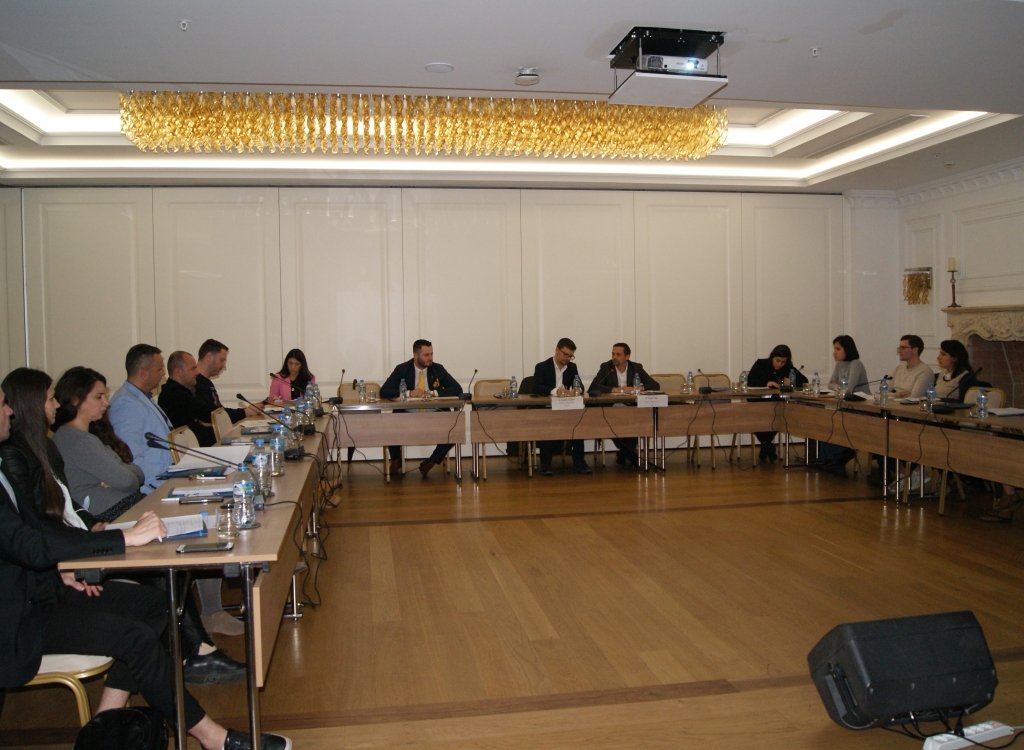
Friday, November 26, 2021
Within the framework of the project “From Information to Action – Strengthening Organizations on Consumer Protection”, supported by CFCU, Ministry of Finance and Economy – IPA 2017 funds of the European Union, European Movement in Albania (EMA) in cooperation with the Academy of Political Studies (ASP) and the Alert Center held the kick-off event on Friday, November 26, 2021, at the premises of Xheko Imperial Hotel.
The focal point of this activity, which was attended by 30 representatives of the civil society, business sector, university or public administration, was the provision of information on the goals and objectives of the project as a whole and the different ways stakeholders can actively participate. Participants in this activity were also the ones selected in the School for Consumer Protection and European Integration, thus, for this reason a session was dedicated towards the introduction of the modules of the School along with technical and logistical aspects of it.
The event officially began with an opening speech by Gledis Gjipali, Executive Director of EMA who stressed the importance of cooperation with partner organizations i.e. ASP and the Alert Center for the smooth running and successful development of all activities within the project. Gjipali stressed the importance of the issue of consumer protection which affects various aspects of the European Integration process as well as different chapters of the European legislation. Consumer protection is a new topic for our country and the responsible institutions set up are still unconsolidated to manage and address all aspects and challenges within this area of work. He drew further attention to the important role that the state administration plays in consumer issues and alongside recognized the essential role of stakeholders in this process due to the fact that consultations regarding the issue are an EU requirement. This comes as a result of the existing capacities that the public administration possesses, which make it difficult to go through this process alone. Gjipali said that information and capacity building are the objectives of the project. He also stressed that the issue of the consumer protection goes beyond the integration process, as it affects us all on an individual level as a consumer. Gjipali highlighted that identifying, informing and providing solutions to problems that affect the consumer contribute to a well-informed and a more aware consumer. He also focused on introducing the activities included in the project as follows: An opening activity for the introduction of the activity to stakeholders; The organizing of the School for Consumer Protection and European Integration; Drafting and publishing an Information Manual for the engagement of activists in monitoring and policy-making enterprises; Support and mentoring CSOs to engage in the Partnership Platform for European Integration (PPIE). All of the above-mentioned activities will be accompanied by an awareness and information campaign where mainstream media will play a crucial role – where TV reports and debates will focus on current issues affecting consumer rights.
Gjipali then went on to present the project objectives where he identified as an overall objective the increase of the capacities for the Albanian CSOs dealing with consumer protection issues and to use this expertise in close cooperation with state institutions to influence the policy and decision-making processes in the context of EU membership.
While reiterating once again the link between the consumer protection chapter and other chapters as well as the European Integration, the harmonization of legislation and the attainment of standards, the floor went to Erjon Tase, Executive Director of ASP. In his speech, Tase stressed the importance of cooperation between different actors, where he underscored the significance of public institutions recognizing the crucial importance of non-public actors. This is where Tase drew attention to the role that non-public actors, as an aware party on consumer issues, have in holding public institutions accountable regarding these issues. Furthermore, Tase noted the issues in implementing policies and following up on obligations undertaken in the framework of European integration. During his speech, Tase stated the great impact and role that networking plays in recognizing different or opposing approaches and viewpoints, thus identifying cooperation and volunteerism as essential in producing long-term and positive effects on issues that affect the consumer.
The last part of the activity was dedicated to a discussion where participants were introduced to each-other and a question-and-answer session was held.














